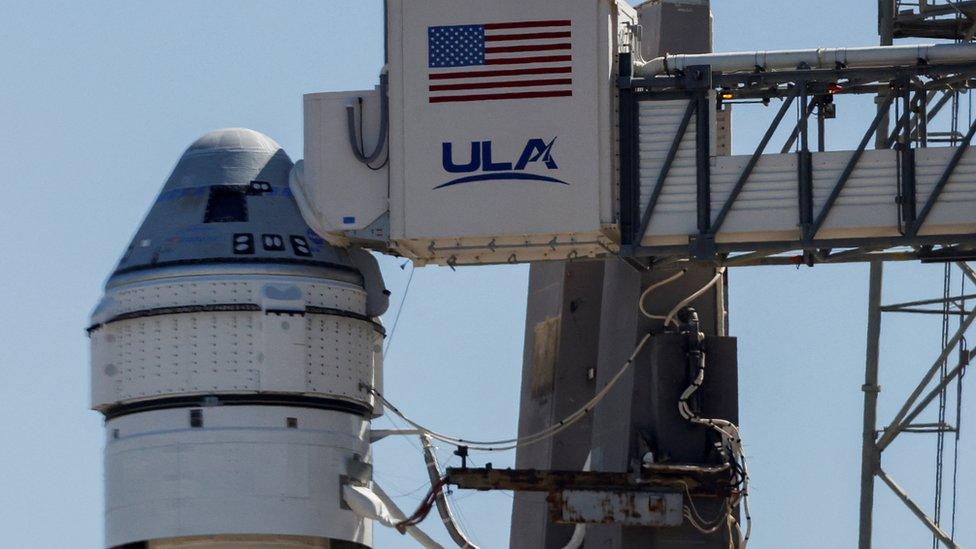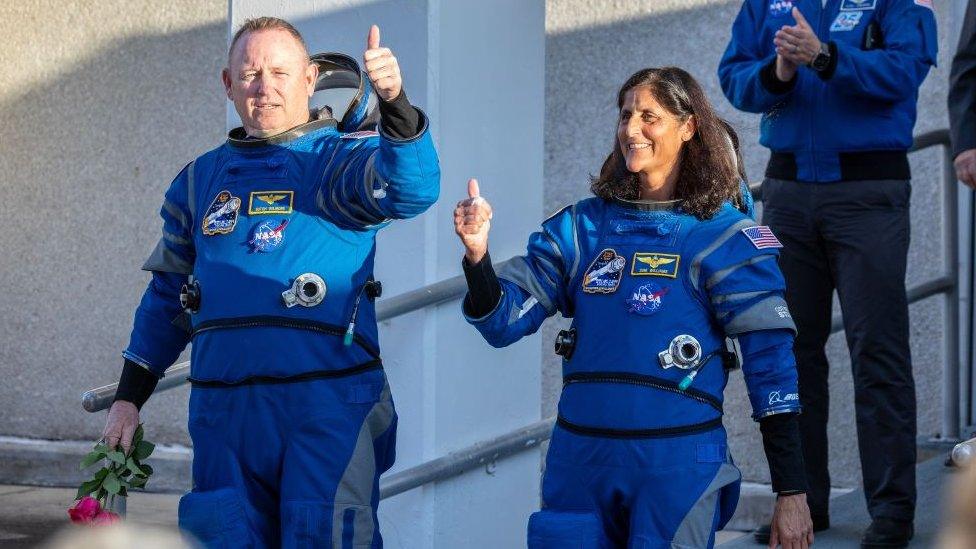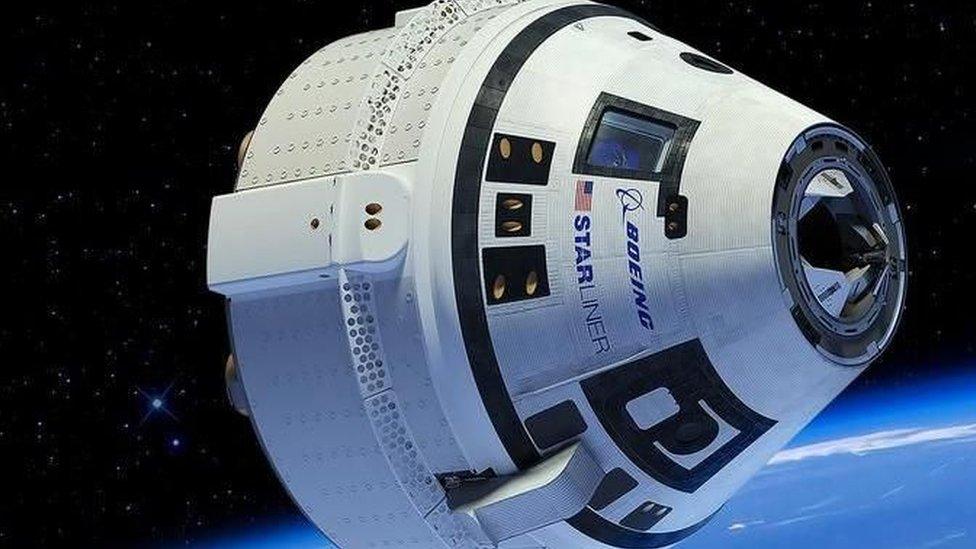Crewed launch to International Space Station delayed for safety reasons
- Published
- comments

The Starliner capsule sits on top of the Atlas V rocket and hoped to take two astronauts to the ISS.
A space flight which was due to launch from Florida in the United States was cancelled just two hours before blast off due to safety concerns.
Two Nasa astronauts were already strapped into their seats ready to head to the International Space Station, but the launch was called off after pre-flight checks showed there was a potential issue with an oxygen relief valve on the Atlas V rocket.
The astronauts, Butch Wilmore and Suni Williams, were safely removed from the Starliner capsule by a team of technicians.
A second attempt at launching the rocket is possible before the end of the week.

Astronauts Butch Wilmore and Suni Williams were ready and raring to head to the International Space Station, but will attempt to take the flight again at a later date.
The rocket, Atlas V, is manufactured by United Launch Alliance, (ULA) - a joint collaboration between private space companies Lockheed Martin and Boeing - that provides launch vehicles to Nasa.
ULA has flown missions for more than twenty years, and Atlas V is America's longest-serving active rocket, but this is its first mission with astronauts.
There were no reported issues with Boeing's Starliner Spacecraft which sits on top of the rocket and the company said a launch could be attempted again no earlier than Friday.

Boeing were hoping to become the second private company with the ability to take astronauts to space, following in the footsteps of Elon Musk's SpaceX.
But it's not the first time this project has had problems.
This mission has already been delayed for several years because of setbacks in the spacecraft's development.
This latest delay was thought to be caused by a valve which is designed to reduce pressure from building up in the rocket's mechanism.
It has been reported that the valve started opening and closing, creating a loud buzzing noise.
Due to strict safety procedures in place, the flight was called off as a precaution.
Nasa's commercial crew programme manager Steve Stich said: "We're taking it one step at a time, and we're going to launch when we're ready and fly when it's safe to do so."
